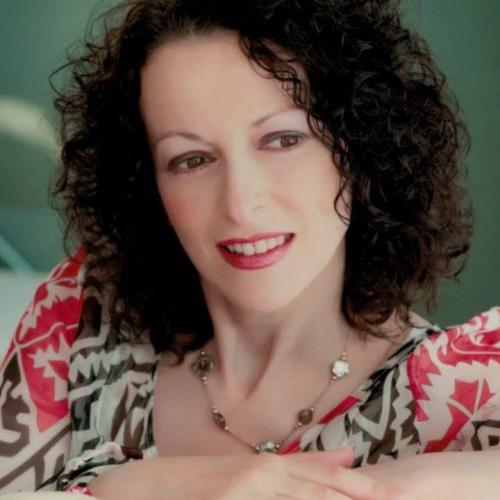Changing Careers Over 50: The Best Decision You’ll Ever Make

Changing careers is daunting at any age, especially when you already have a successful career. But with transferable skills, work experience and (most importantly) life experience, switching careers may be easier than you think!
If you’re considering a career change but are unsure whether it’s right for you, we’ve got you covered. We’ve compiled a list of why changing careers over 50 is a great idea, what you need to do to get prepared and some of the best jobs you could dive into.
Your skillset is already established
Unlike younger people, you’ve already had years to practice and sharpen skills that your new job will appreciate. This is a huge benefit to a new role, and something you can really highlight in your job search. Hiring managers will come across lots of job seekers straight out of university who only have theoretical knowledge, so your previous work experience will set you apart.
Your current skills can differentiate you from other potential workers while also showing employers that you’re quick at learning and picking up on new things.
Plus, you’ve had time to develop interests and passions outside of work. These can help you bring a wider perspective to your next career.
of people expect to retire between ages 66-70
of women make up the Australian workforce. Of that percentage, 58.8% are mature age women
There are several incentives for older workers
The government has what is called a restart incentive for employers, whereby employers receive a monetary bonus for hiring and retaining workers over 50. When you’re looking for a new job or new career, being nearer to the retirement age is actually beneficial.
There are also career counsellors and career coaches who specialise in workers who are 50 and older. And there are plenty of online resources designed to give you all the tools you need to get back into the workplace.
You won’t be discriminated against because of your age
While companies could previously have younger people in mind for a role, it is now illegal to discriminate against job candidates based on age. Now you can let your skills speak for themselves without worrying if your age is a negative asset to your job search.
If you’re a good match for the company, chances are you’ll at least score a job interview. Then you can prove you have the know-how to start a new career path.
Midlife career change tips
Be practical
To change into a new career, you will most likely need to update your skills and knowledge. Gaining a qualification before you enter your second career will provide you with the necessary training, education and direction that is required in order to begin your new career journey.
Research before you begin your job search
Scope out the job market and see which positions are available in your future industry. Look at job advertisements and notice what skills and qualifications they list. This will give you an idea of what training or qualification you will need to break into this new industry.
Remain flexible about salary
When you begin in a new career field, this typically means that you will have an entry-level salary.
Take baby steps
Don’t expect to dive in and be an expert in your new field. If possible, find someone who is advanced in your new industry area and pick their brain – this will help you. It’s often a good idea to find a career coach who has knowledge in your new industry.
Have a financial safety net
When changing careers, it’s sensible to have a financial safety net – just in case anything unexpected happens in your career search or new role.

Sue Ellson
Independent LinkedIn Specialist and Career Specialist based in Melbourne
There is never a time to rest on your laurels and assume that you know all that you need to know about your area of expertise. Make an effort to learn something new on a regular basis. If you go to a course, seminar or conference related to your specialty area, you should always be able to learn at least one new thing and share your knowledge with the other participants.
If people see you both online and in-person in the ‘marketplace’ you are much more likely to be perceived as current and up to date rather that stuck in the past and collecting dust!
New challenges are new opportunities
It may seem like new challenges are the last thing you want to be dealing with. However it’s important for our wellbeing that we continue to learn and grow, and a new role can help us do just that. By changing careers, you’ll learn new skills that you didn’t have the opportunity to discover in your previous job.
Maybe you’ve always worked in IT, so haven’t had much of a chance to develop face to face communication skills, or vice versa. A new role may also mean you have the chance to learn new life skills, like using social media.
It’s never been so easy to get new qualifications
Studying new skills throughout life has become much more common, with online courses and micro-credentials gaining respect from employers. There are a huge number of short and longer courses available at local colleges, universities and Australian TAFE providers.
It’s never too late to upskill, reskill, or get a new qualification that will enable you to start in a new industry or a new field.
A midlife career change is ready and waiting for you. You just have to be ready to embrace your new job!
Find out about short courses to get you started here.
Midlife job changes are common in several job markets
There are a few industries where job changes are common at an older age, particularly teaching. Teaching offers a number of positive career management options.
The hours are more suited to people who have commitments outside of work. A career in teaching doesn’t have to be full-time, many teachers work as substitute teachers or part-time teachers. Alternatively, you can teach adults at university or TAFE, which may only require a limited number of hours.
While teaching is one of the most common job changes, it’s certainly not the only option. Retail jobs are also popular because so many of them are part-time or casual. Other jobs that tend to attract 50-years-olds and above include the clergy, counsellors, and administrative assistants.
I was an expert in my field and working in an influential role for a global power brand. But my heart and values were no longer aligning with those of the corporates I had worked with for so many years. I decided to do my fifth qualification so that I could pursue my skincare passion and launch my own business, Skin Clinica.
It has been the most challenging work experience in my life, especially with COVID in 2020, but it has also been the most amazing learning and growth opportunity.
Don’t let others define you by your age. “Wrinkles should merely indicate where the smiles have been”. Keep smiling and know that you have earned them.
10 great careers for people over 50 to change into
Consider starting your own business
If you’ve got a flair for entrepreneurship or you’ve always dreamed of starting a business, this could be the perfect time. People over 50 have the discipline, motivation and life skills to see their ideas through.
Got an idea already? All you’ll need is a short small business course and you’ll be ready to roll!
There has never been a better time to be a mature age career shifter. There are incentives for businesses to hire older workers. Plus, training and short courses are available all over Australia, and there’s increasing recognition of the skills that baby boomers and above can bring to the workforce.
Try our course navigator to find available courses that would be a good fit for you.



